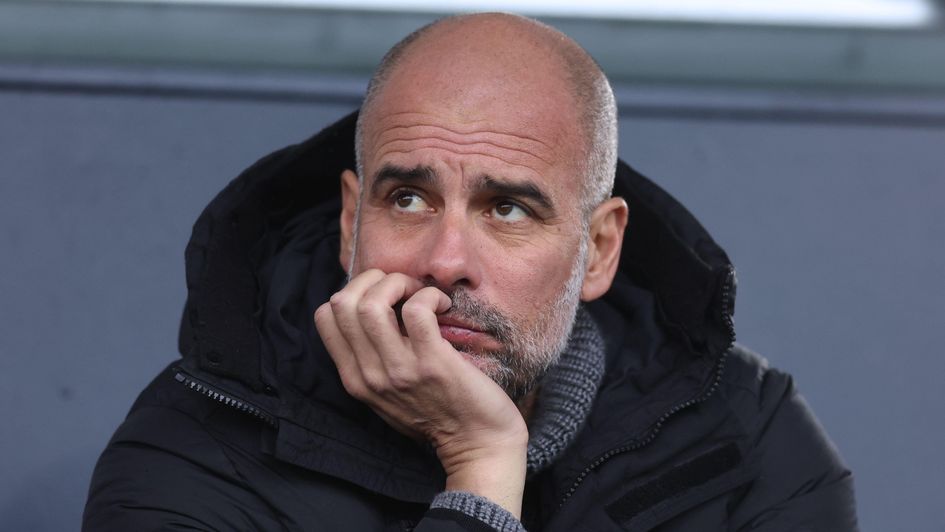- Published following Man City's 2-1 win against Luton
On the hour mark at Kenilworth Road, Manchester City were staring into the void.
Pep Guardiola does not know what this feels like. He has never been in crisis before.
Every fibre of his being yearns for absolute control, for omnipotence, specifically to avoid moments like these; to keep at bay the fear of the unknown and the chaos that comes with disorder.
This is new territory and the turnaround that followed at Luton won’t have quelled Guardiola’s anxiety. Man City are not in crisis, but they are wobbling.
City are only three points off the top of the Premier League table but they have their worst points return from the opening 16 matches since Guardiola’s first season in charge, when they also had 33 points at this stage.
By May of that season, Guardiola was honest about his failures: “In my situation at a big club I’m sacked. I’m out. Sure. Definitely.”
The club has radically changed in the seven years since, remoulded entirely by Guardiola, and yet in 2023/24 the team is more like a caricature of his principles.
They seek control but look slow; they hog possession but lack purpose. Nursing a hangover following last year’s treble, and with no mountains left to climb, there is a feeling amidst the fog that the Guardiola era is ending.
A familiar feeling
But we’ve been here before.
Indeed in each of the last two seasons Man City have looked curiously ponderous in the winter only to come alive in the spring and most pundits agree Guardiola’s side remain favourites for a record-breaking fourth consecutive league title.
Nevertheless things are different this time.
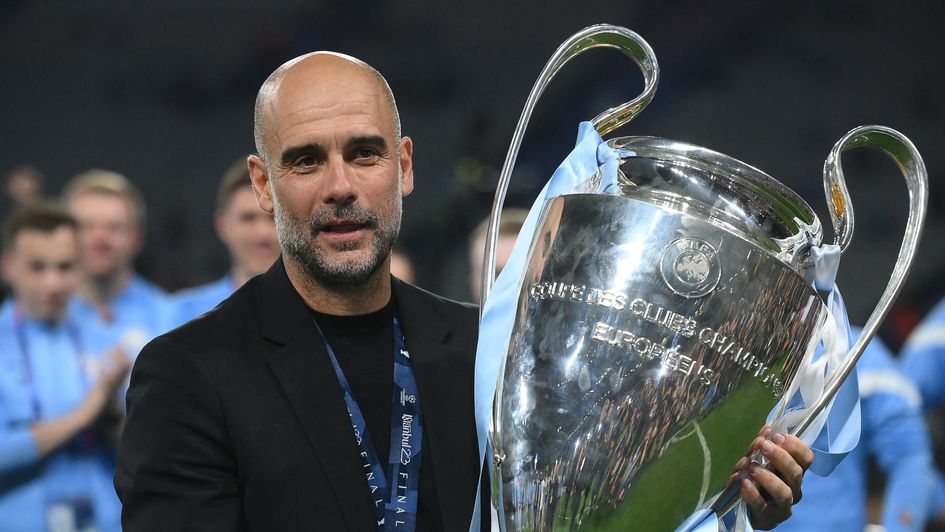
City have conceded more goals and scored fewer than at this stage in 2022/23, winning three fewer points in the process. And unlike last year, there is no obvious fix for problems that are as much about personnel as tactics.
What stands out most obviously is the severe downgrade in central midfield; the vortex around which everything spins in a Guardiola team.
Out went Ilkay Gundogan – a man who averaged 13 Premier League goal contributions in each of his final three years at the Etihad – and in came Mateo Kovacic and Matheus Nunes, two neat-ish footballers who waft around midfield like tribute acts to Guardiola number eights.
It’s an issue compounded by the Catalan’s latest tactical development, which is yet to be scrutinised purely because it is sacrilege to doubt his inventions.
But it’s time to say it: playing four centre-backs in a line, and thus depriving central midfield of the dynamism of a forward-thinking full-back, just isn’t working.
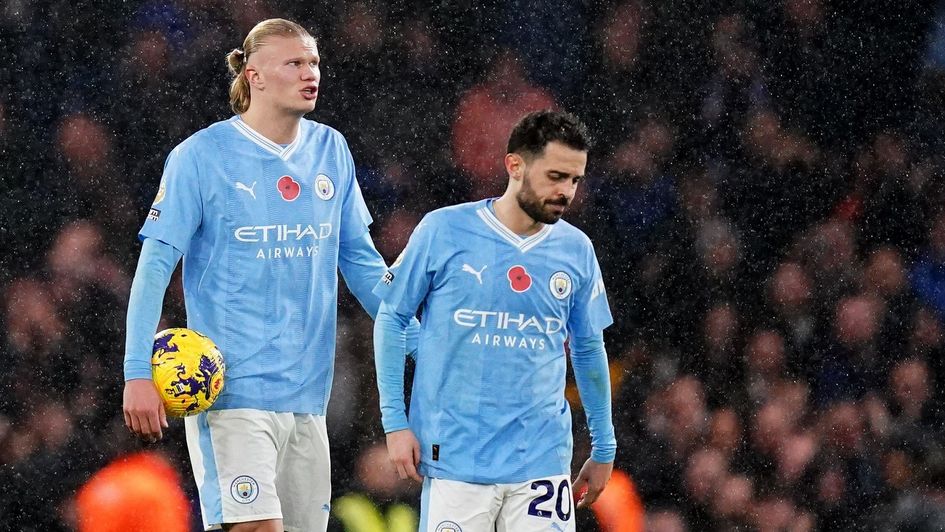
It was a smart development that saw Man City through the exhausting post-World Cup months in 2022/23, but it is not suited to facing Premier League opponents so well versed in applying the squeeze in midfield - and no longer fearful when facing the champions.
Fear is perhaps the right word for Man City supporters looking at a thin bench and a squad repurposed unnecessarily to double down on the new order.
Joao Cancelo was allowed to leave last January, Oleksandr Zinchenko the summer before, leaving almost no full-backs in the squad. Incidentally there is no Gundogan equivalent, and no Rodri cover whom Guardiola can trust.
Aston Villa tore through the middle for a combination of those reasons, plus of course the absences of John Stones and Kevin De Bruyne, and although focus has rightly been on Villa’s climb towards the summit we ought to acknowledge this was an unprecedentedly poor performance from Man City.
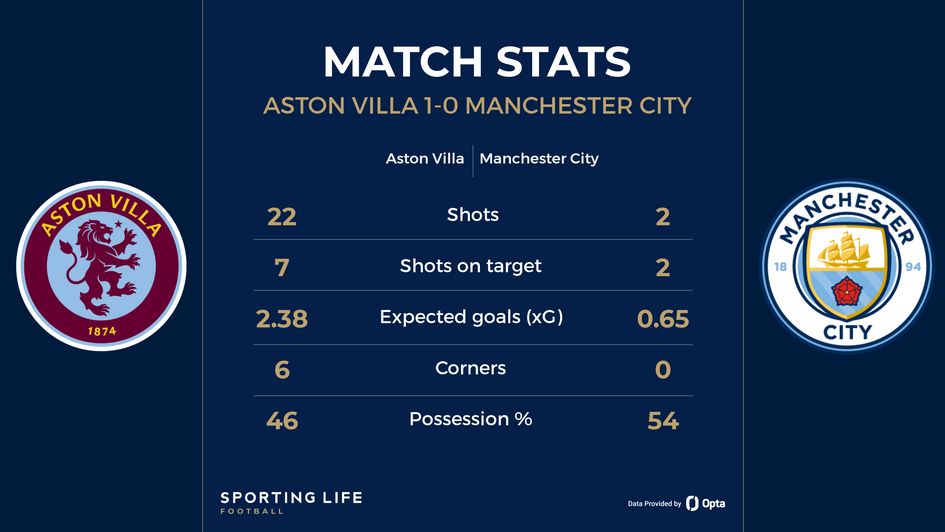
Their final shot of the match came in the 11th minute.
They faced more shots and took fewer shots than Guardiola has ever seen across 535 matches as a manager.
That surely signifies something deeper than a minor blip, something more than typical City ponderousness before an inevitable surge on the home straight.
These things just don’t happen to Guardiola teams. There is nothing in the playbook for this.
It's not just the midfield
The issues go beyond central midfield.
De Bruyne’s injury has severely impacted Man City’s creativity, chiefly because the Belgian’s final ball often ran in contrast to the rhythms of possession that lulled opponents to sleep before it.
There is no counter-point without him; nobody to shift gears or pull compact defences out of position aside from Jeremy Doku and his single-minded dribbling.

Erling Haaland is struggling without De Bruyne, too, and his inability to affect play outside the penalty box has become an increasing problem without Gundogan to fill those gaps between the lines.
Phil Foden and Julien Alvarez have been playing well, but neither has the killer instinct of De Bruyne, Gundogan, or Riyad Mahrez - another big summer loss.
He averaged 16.5 goals and assists per season across seven years, and yet nobody thought to replace him.
Still, City’s fixture list looks tame over the next couple of months and De Bruyne’s return after Christmas is a huge boost, although the biggest reason for optimism is simply Guardiola’s genius.
His innovations are never predictable and his problem-solving should never be underestimated.
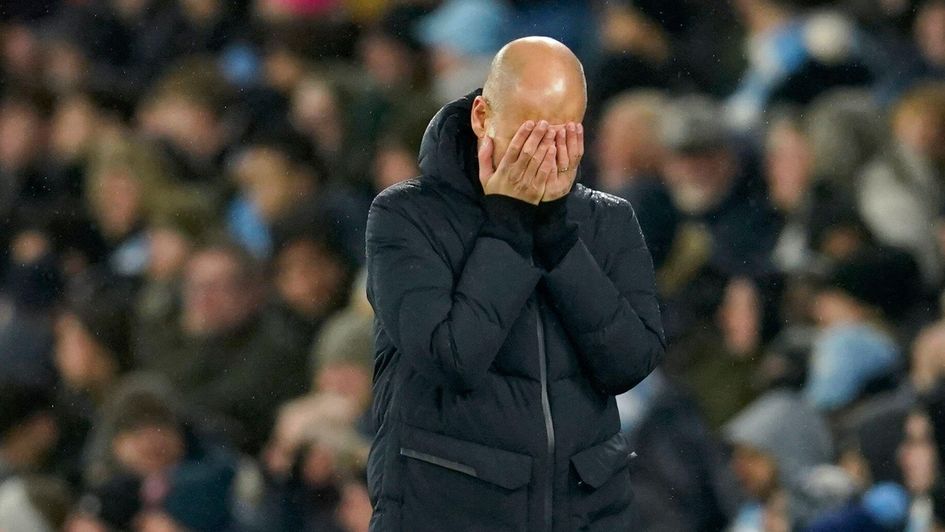
Yet doubts linger. Man City are in a funk.
They have won everything there is to win and appear unable to lift themselves for the daily grind. Guardiola has been at the club coming up eight years, double the length he spent at Barcelona.
Perhaps he, too, is tired.
It certainly feels like an endgame, like a legendary era winding down... and yet, up until now, anyone who dared to doubt Guardiola has been proved spectacularly wrong.
More from Sporting Life
Safer gambling
We are committed in our support of safer gambling. Recommended bets are advised to over-18s and we strongly encourage readers to wager only what they can afford to lose.
If you are concerned about your gambling, please call the National Gambling Helpline / GamCare on 0808 8020 133.
Further support and information can be found at begambleaware.org and gamblingtherapy.org.



